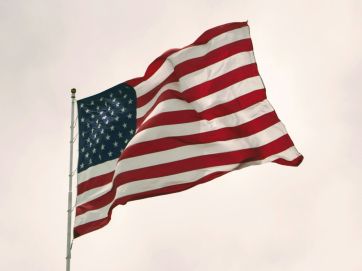Earlier this year, the Department of Education issued the report A Crucible Moment: College Learning and Democracy’s Future on the revamping of civic education. Rather than establish clearer standards for curriculum, the report’s suggested improvements appeared only to put forward plans for “community organizing” and “progressive ideals.” The fall 2012 issue of Academic Questions presents a forum in which scholars respond to A Crucible Moment and put forward their own visions of what civic education entails. Forum participants discuss their wide-ranging ideas for a proper post-secondary civics education.
NAS members will receive printed copies of this issue in the mail. If you are a member and would like to read journal articles online, email [email protected] with “AQ access” in the subject line. We’ll email you a unique link which you can use to set up your online AQ account. If you are not a member of NAS, please join us! We welcome everyone who agrees with our principles. Membership is renewable annually and includes a one-year subscription to Academic Questions in print and online.
Here are the featured articles from this issue (there are also additional reviews, and poetry not listed here). Four of them (“New Cogs for Old,” “Civics without a Country?,” “An Unbalanced Crucible,” and “Against ‘Diversity”) are available for free at www.nas.org.
Rebuilding the Temple
Charlotte Allen
Civic Literacy
Mark Bauerlein, Emory University
An Unbalanced Crucible
Patrick J. Deneen
Civic Education versus Civic Engagement
Donald A. Downs, University of Wisconsin—Madison
New Cogs for Old
Daniel J. Flynn
Beyond Reason
Mary Grabar, Emory University
Two Few Examples, Too Much Law
Neil W. Hamilton, University of St. Thomas School of Law
Bring the Constitution Back In
KC Johnson, Brooklyn College
Questioning the Founders
Thomas K. Lindsay, Texas Public Policy Foundation
Civics without a Country?
Diana Schaub, Loyola University Maryland
Against “Diversity”
Roger Clegg, Center for Equal Opportunity
John S. Rosenberg
In discussing the case of Fisher v. University of Texas (on the Supreme Court docket this fall), which challenges the use of racial and ethnic preferences in admissions allowed by the 2003 Grutter decision, Roger Clegg and John S. Rosenberg present a series of powerful arguments against the policy of “diversity” and its claimed educational benefits.
The Cultivation of Racism
Douglas G. Campbell, Walden University
Douglas G. Campbell examines how far the dispensation of diversity has advanced in the California State University (CSU) system, where, he argues, “Racial and ethnic separatism and prejudice are encouraged…through a regime of indoctrination and segregation.” Among the examples offered are CSU-sponsored “conversations on diversity” that encourage students to vent their feelings of anger and victimhood.
Anti-Family Fantasies in “Cutting-Edge”
Anthropological Kinship Studies Warren Shapiro, emeritus, Rutgers University
Warren Shapiro illustrates how the “radical” feminist pronouncements of contemporary anthropologists doing kinship studies conflict with the realities of kinship in human groups, in which the preeminence of biological parenthood is virtually universally respected. This piece harkens back to AQ’s Summer 2012 focus on “Frauds, Fallacies, Fantasies, and Fictions.”
Seeking Relevance: American Political Science and America
Robert Maranto, University of Arkansas
Matthew C. Woessner, Pennsylvania State University, Harrisburg Inspired by constructively critical articles on the state of political science by Lawrence M. Mead included in the Winter 2010 and Fall 2011 AQ (“The
Other Danger… Scholasticism in Academic Research” and “Scholasticism:Causes and Cures”), Robert Maranto and Matthew C. Woessner claim that the state of the discipline is not as dire as many—including Mead—suggest. They propose a number of practical suggestions for sharpening political
science’s real-world relevance.
Rooting and Weeding: Sustainability and Its Critics
Peter Wood, National Association of Scholars
In a review essay, NAS president and AQ editor Peter Wood discusses The Sustainable University: Green Goals and New Challenges for Higher Education Leaders, by James Martin, James E. Samels, and Associates, and Merchants of Despair: Radical Environmentalists, Criminal Pseudo-Scientists, and the Fatal Cult of Antihumanism, by Robert Zubrin. He summarizes the threat that sustainability as a dogma—which resembles diversity in its scope, intricacy, and all-encompassing nature—presents to free institutions, including higher education, as well as NAS’s efforts to battle it.
“I Told You So”: The Critique of Pure Modernity from 1920 to 2001
Thomas F. Bertonneau, State University of New York at Oswego
Books, Articles, and Items of Academic Interest guest columnist Thomas F. Bertonneau describes the books he’s assigned for a seminar on how early twentieth-century thinkers anticipated the dark side of modernity, with the goal of providing students an alternative intellectual foundation from which to challenge the unexamined givens of the postmodern academy. In the process, Bertonneau shows us how “reading backward” can become a look forward.













